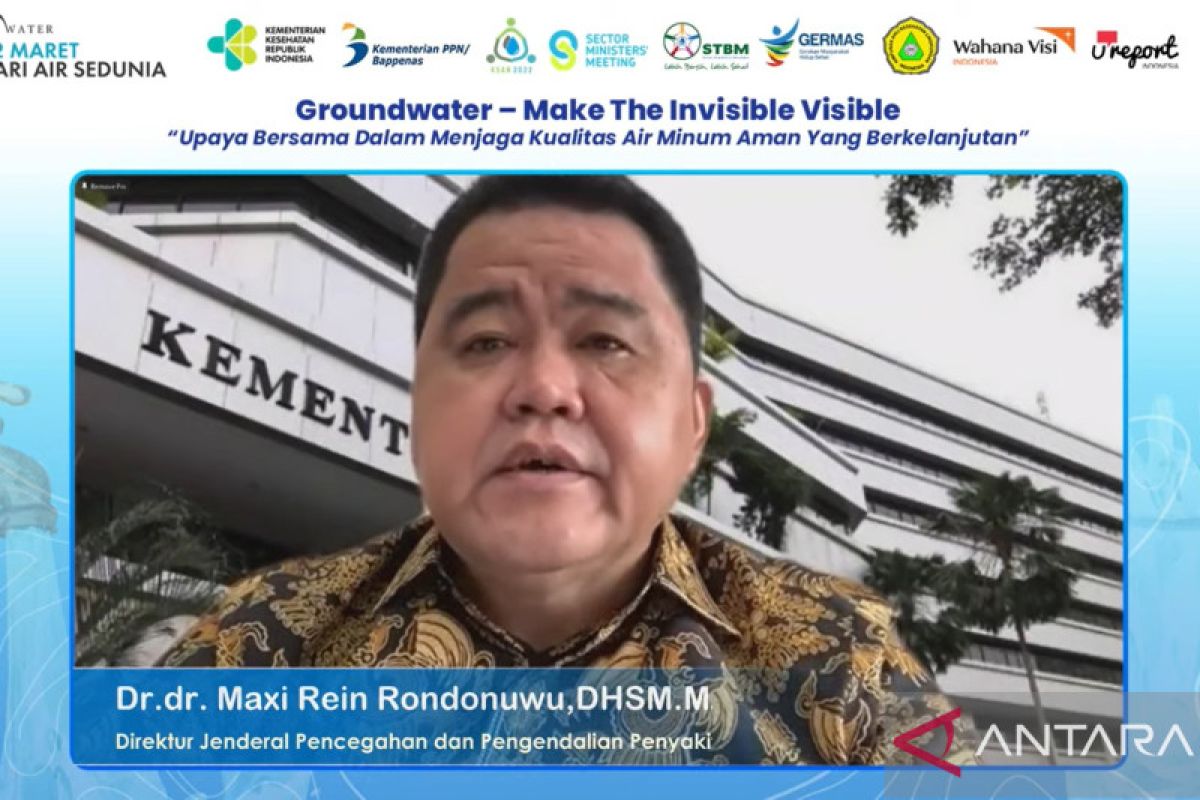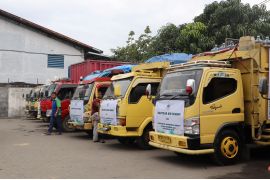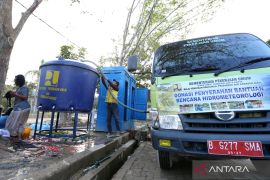Improper defecation, both in open or enclosed spaces, can cause environmental pollution, especially in terms of microbiology, he noted at the ‘Collective Effort in Sustainably Maintaining Safe Drinking Water Quality’ webinar on Tuesday.
The goal of safe and proper clean water provision as well as sanitation is also being threatened by the decline in water springs and groundwater resources each day.
This has led to water utilization restrictions, and even discontinuation, to ensure the groundwater level does not continue to decrease.
This is despite the fact that the sustainability of proper and safe drinking water as well as sanitation are among the sustainable development goals (SDGs).
"This certain became our collective action," Rondonuwu remarked.
The government is aiming to provide 100-percent proper drinking water access and 15-percent safe drinking water by 2024.
According to Rondonuwu, this goal is achievable if all parties can wisely utilize groundwater and stop improper defecation to protect the surrounding environment and groundwater quality.
He then urged regional governments to push for the provision of safe water by bolstering monitoring.
They should ensure the implementation of risk management in drinking water provision and strengthen the education process to ensure safe drinking water.
The ministry also invited people to maintain and provide quality drinking water access till the point of use.
They should do this whether in households, public facilities, workplaces, tourism locations, and strategic locations.
Related news: Ciliwung water now suitable for drinking, fish cultivation: community
Related news: Govt to make two drinking water projects operational in 2024
Translator: Hreeloita D S, Fadhli Ruhman
Editor: Suharto
Copyright © ANTARA 2022












